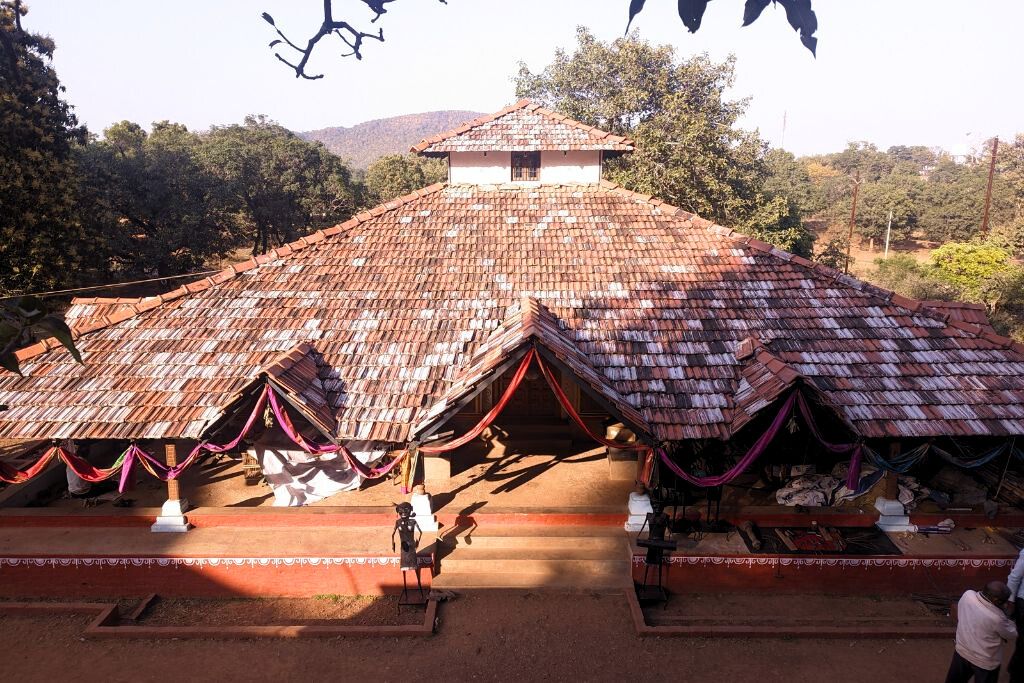
Experience a slice of traditional living at this MP ‘ashram’
Reverse-migrating from Gurugram to their roots, this couple from Madhya Pradesh set up Jeevika Ashram near Jabalpur to embrace a traditional lifestyle, promote local crafts and give visitors an authentic cultural experience at their property.
Ashish and Ragini Gupta, the couple behind Jeevika Ashram, set up this property at Indrana, 30 km out of their native place, Jabalpur in Madhya Pradesh, to document and preserve local customs and practices, and collaborate closely with artisans. Ashish, who holds a postgraduate diploma in rural management from the Institute of Rural Management Anand, left a corporate career in Gurugram to forge a more meaningful, deeper connection to his roots and lead a simpler way of life. After careful consideration and consultations, the family moved to this village in 2017. Their journey was not just a personal quest for fulfilment but also a commitment to preserving and nurturing local culture and traditions as part of traditional living. (Photo by Brajesh Patel)
Over the years the buildings and landscapes of Jeevika Ashram have blended into the village and the surrounding hills. This area is a part of the Gondwana region, nestled in the foothills of the Vindhyas and near the banks of the Hiran river. A part of the property, called Amrai Gram Stay, is open to overnight guests as well as day visitors. Tariff structure is customised as per the guests’ requirements. They can watch the local artisans and artistes here, practising diverse disciplines, from ironwork and bamboo craft to sculpting and theatre. Guests can also buy artefacts available on sale here. (Photo by Unnati Sharma)
Halke Bain, a bamboo artisan from Indrana village, has created everything that he remembered using this versatile natural material. The product range includes not just baskets, but multiple designs of baskets in various sizes, each with a unique purpose such as washing rice or gifting the bride her beauty articles. Other artisans similarly work to preserve different crafts, including metalwork and pottery. (Photo by Unnati Sharma)
A traditional Bundelkhand kitchen called Bundeli jevanaar serves as a model cooking space, showcasing old metal vessels and stone tools like the chakki and sil batta, and techniques of cookery. The freshly prepared food is prepared for visitors on advance notice. Guests can enjoy fresh Bundelkhandi food such as bajra ka daliya, laapsi and dal bati, among other dishes. Visitors must sit on the ground and eat out of leaf plates while enjoying an authentic experience of the region’s culinary heritage as part of traditional living. Charges vary as per season. (Photo by Unnati Sharma)
Stone-built kitchen tools are kept in the ashram, serving a dual purpose. While they are used regularly in the preparation of meals, they also serve as a reminder of traditional techniques used in the past for the younger generation. (Photo by Unnati Sharma)
The inside view of the kitchen reveals a harmonious blend of modern and traditional tools, used as per convenience. Here food is cooked on a woodfire in keeping with the older norms of cooking in traditional living. (Photo by Unnati Sharma)
The walls of the buildings are adorned with vibrant traditional motifs, each stroke echoing the rich heritage of tribal art. These creations tell stories of ancient wisdom, myths and legends passed down through generations. (Photo by Unnati Sharma)
Also Read: Family of woodcarvers preserves Chhattisgarh’s Muria Ghotul art
A glimpse of the museum on the premises. Inspired by the late Ravindra Sharma (Guruji), an artist, activist and advocate for preserving Indian heritage, and his Kala ashram in Adilabad, Telangana, Jeevika Ashram supports an artisan-based lifestyle and works to implement this philosophy within the community. It also holds residential workshops for guests on traditional living. (Photo by Aryaman Jain)
Also Read: Live like a tribal at these Bastar homestays
The lead image on top shows a bird’s eye view of Jeevika Ashram, located at Indrana, near Jabalpur in Madhya Pradesh.
Unnati Sharma is a journalist, writer, and translator. She has worked with ThePrint as a Senior Correspondent specialising in politics, in-depth features, and art and culture stories.







